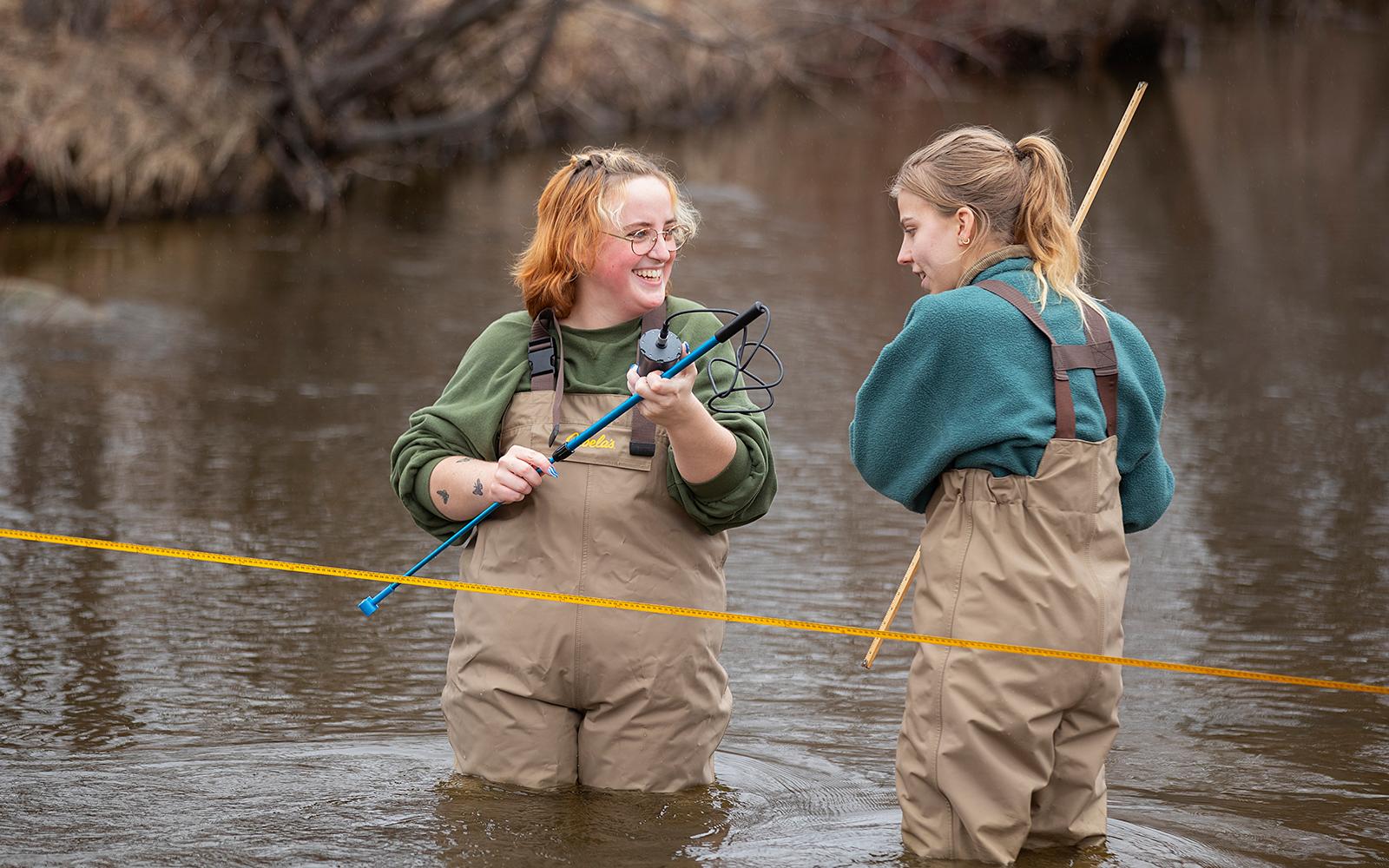B.S. in Environmental Science
The B.S. in Environmental Science is an interdisciplinary major that gives students the knowledge and skills they need to understand the complex interactions between the biological, chemical, and physical aspects of the natural world using the Earth Systems Science approach.
This program includes 30 credits of foundational (cognate) math and science courses, 29 credits of core classes that focus on the Earth’s major systems (air, water, soil, life, and solid earth), and a minimum of 14 credits of electives. Students with specific interests can more formally explore them via a concentration (14-15 credits), a minor (generally 16-18 credits), or a double major (generally 30-45 credits) in closely allied fields. This curriculum provides comprehensive, interdisciplinary training that gives students the background that they need to help solve some of society’s most pressing problems.
Outcomes
Students will be able to:
- demonstrate knowledge of the major Earth systems (atmosphere, pedosphere, hydrosphere, biosphere, and geosphere).
- apply observational, descriptive, technical, analytical, and quantitative skills to an environmental problem.
- demonstrate understanding of how policy intersects with environmental concerns.
Career Outlook
Environmental Science-related occupations are projected to increase by 4 to 6 percent over the next 10 years.
"It's really exciting that we get to go on field trips almost every week, and see the nature around Potsdam while learning all the names of the rivers and the different brooks. I think nowadays it's super important that as a society we start to gain more awareness about the roots of our issues. So much of it comes back to how we're treating the earth and the environment.”
Claudia Basabakwinshi '24
Environmental Science major
Bloodsuckers Beware!
SUNY Potsdam students are on the front lines of mosquito surveillance, tracking viruses like EEE and West Nile to help keep the North Country safe. Supported by the Presidential Internship Program, their research is making a real impact—one trap at a time.
read more
Tiny Bugs, Big Trouble
The emerald ash borer is decimating northeast forests, but Alyssa Card ’26, and Kelly Bloom ’25, both environmental science majors, are working with Dr. Jessica Pearson to get a step ahead of the threat.
read more
Tick Trackers
As Jada West ’24 drags a light-colored flannel sheet across the forest floor, she searches for microscopic creatures most of us hope never to encounter. Pulling the sheet over leaves, plants, and soil she captures Blacklegged ticks like a lint roller absorbing fuzz balls from a favorite sweater. Working with Dr. Kate Cleary, Dr. Glenn Johnson, Dr. Bridget Amulike, and Dr. Jessica Pearson, West and four other students were able to get hands-on experience through grant-funded research this summer, studying small mammals and examining tick abundance around Potsdam.
read more
Measures of Success
Just a mile down the road from SUNY Potsdam, Claudia Basabakwinshi ’24 slips into her waders and carefully steps into the chilly water flowing through Parkhurst Brook. Extending what looks like a blue telescopic ski pole, she measures the water velocity with a flow meter, as her classmate Alyssa Card ’26 calculates the depth of the stream. The two students are part of the first cohort in the College’s brand new environmental science program, which is preparing students for careers in environmental conservation and protection.
read more
SUNY Potsdam Announces Interdisciplinary Bachelor of Science Degree in Environmental Science
SUNY Potsdam is proud to announce its newest baccalaureate degree in the growing field of environmental science. The new Bachelor of Science degree program integrates coursework in the sciences and environmental studies, to prepare graduates for fulfilling careers in environmental protection and conservation.
read more




